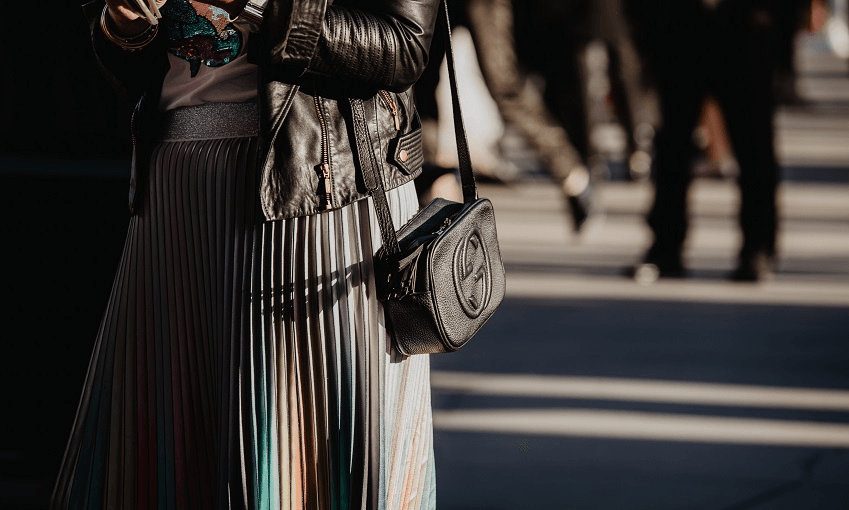While bargain hunters get excited that cut-price retailer Costco is on the way, across the Tasman opportunity lurks for New Zealand firms targeting the other end of the shopping spectrum, writes Bella Katz.
Luxury. It’s a New Zealand brand’s friend in Australia. If New Zealand companies don’t position their consumer products at the high end of the market they’re losing a unique opportunity to build brands with longevity that command a premium.
The Australian luxury retail sector is on an upward trajectory, fuelled both by local buyers and tourists from countries with an appetite for the luxe. Ibisworld says the premium category is set to grow at between 6 to 8% a year, compared with broader Australian retail where growth is only around 3%.
Take the Gucci store in Melbourne’s Chadstone Shopping Centre which could be mistaken for a super-hot nightclub. Everyday people line up outside behind a rope, and the bouncer-slash-security guard has a policy. It’s one in, one out.
For a brand with a $155 pair of socks as the cheapest item, Gucci is oblivious to any signs of retail woe. Seemingly, no election nerves or fears of economic downturn can touch Gucci or any other super luxury equivalents.
Meanwhile, over the other side of town, Baker Bleu rewards a long daily queue of customers with delicious and high-priced sourdough bread from a tiny store window. Every day it sells out hours ahead of closing time, and yet the bakery continues to limit production and turn people away. Far from discouraging tomorrow’s customers, the fear of scarcity makes them line up earlier to get that baguette.
That’s not to say times aren’t tough for the everyday Australian retailer. The market is polarised, and complicating matters further, we may be value seekers in some product categories and premium pundits in another. So a retailer’s own brand might be the label of choice for cereal but nothing short of the most expensive shampoo will do.
It’s a complex time in retail with a multitude of brands in every single category. Category buyers may see ten completely new brands of skincare pitched to them every single week, and some of the most obscure labels can have a bigger digital voice on social media than more established ones. How else to explain the Kylie Jenner phenomenon and her billion-dollar beauty empire, which is based on nothing but fame?
Australians show premium propensity towards the same categories as buyers from all over the world, with personal electronics, clothing and shoes, cosmetics, jewellery, and dairy products topping of the list. In the grocery category, Australians are willing to pay a higher price for premium meat and seafood, coffee and tea, alcohol and spirits, and dairy and haircare.
When it’s a product that’s organic, all-natural or environmentally sustainable, Australians are also prepared to pay a higher price for it, according to Nielsen’s Changing Consumer Prosperity Report.
Doesn’t that look like a good news story for New Zealand? Those categories are replete with Kiwi offerings. The challenge is differentiating themselves in this market as genuinely premium, and that means making every contact point worth the customer’s money.
New Zealand consumer brands, like Australian ones, are still relatively young – we’re yet to have the long history of European houses with celebrated founders. But what we do have is the formula for how those established brands were built and their reputations maintained to always command top dollar.
There’s a commitment to premium positioning that’s for the long run and a brand that’s built meticulously. It says no to discount, high volume channels which means reconsidering selling through notorious discounters like Chemist Warehouse. Take a lead from brand builders such as Aesop skincare, whose products you’d never see on Chemist Warehouse shelves.
While Chinese tourists in Australia make up 30% of the luxury market, the remaining 70% are locals. Australians have serious appetite and deep pockets for a quality item with a good story behind it.
Again, this is magic for New Zealand exporters to Australia, because the reputation New Zealand companies have is as skilled brand creators with an irreverent sense of humour.
We just have to make sure those classic luxury values are there: scarcity, high-quality ingredients, specialised manufacturing techniques and, in some categories, efficacy. And they should be balanced with unique and customised experiences in-store and online, as well as rewards for loyalty, and a sense that the customer’s business is genuinely appreciated.
Bella Katz is a commercial business advisor with New Zealand Trade & Enterprise in Australia, and a frequent writer and speaker on the topic of brands.
